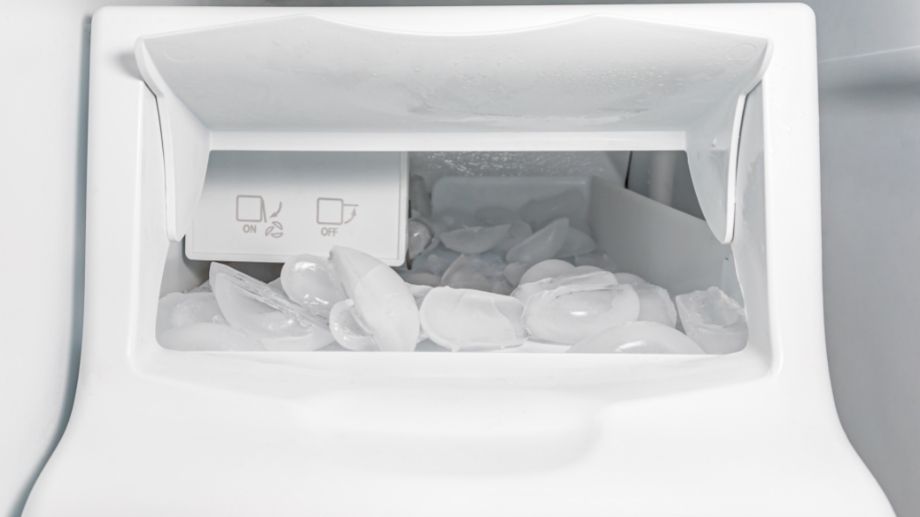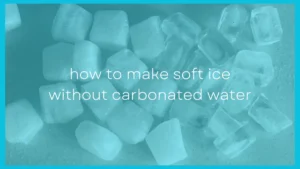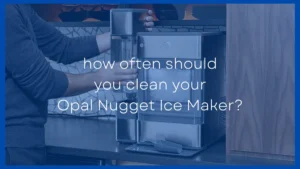Ice makers are a simple and easy way to make ice cube on demand without much effort required.
However, sometimes the ice from your ice maker might taste like chemicals. This ice smells and as it melts it'll completely ruin the taste of your drink. Not to mention fears that you might be ingesting something unhealthy.
But why does ice from ice makers sometimes taste like chemicals and how can you fix it?
Ice takes on a chemical taste if there are water purity issues. The odor of strong-smelling food stored in the refrigerator can infuse with ice. A new fridge or ice trays can impart a slight plastic smell. Musty odors and tastes may be stuck on the ice maker itself, resulting in a chemical taste.
Most of us have experienced the unpleasant realization that our ice cubes smell off and are infusing the beverage with a stale taste.
The ice cubes inside your freezer can absorb flavors from any number of sources or they may just have been made with bad water to begin with. Funky-smelling ice cubes will spoil any drink, and they will also ruin the taste.
Here are the ten common causes of chemical-smelling ice and the things you can go to get great tasting ice every single time:
1. New Freezer and Ice Maker Is Leaving A “Plasticky” Taste

New cars, coolers, and new fridges have one thing in common. They all have a distinctive ‘new’ smell.
These items characteristically have this smell because of a natural off-gassing process. Chemicals from the new plastic, or chemicals hanging around from the manufacturing process, are slowly released in vapor form into the air and remain trapped inside these confined spaces.
The new freezer scent is perfectly natural and will disappear in time, but the slight plasticky odor is not something you want to be added to your cold drinks.
It can take some time to go away naturally but luckily there are some things you can do to speed this up and get better tasting ice faster.
How to solve this: Discard the ice inside your freezer. Make some fresh batches and keep discarding them. Each batch will collect some of the chemical vapor, and the smell will dissipate until it is gone.
If your ice maker also dispenses water then fill as discard around 4 gallons of water to clear the pipes from any plastic residue.
You can also try washing the inside of the fridge and freezer thoroughly, but this may not be as effective. Keep in mind that odors from the fridge are shared, so you would need to wash out the entire refrigerator, not just the freezer section.
While most of us need our freezers continuously, if your new appliance is an extra, you can switch it off and leave it open for a few days or weeks. This will allow the new-plastic smell to dissipate naturally.
2. Odors From Your Fridge and Freezer

Most refrigerators are single evaporator units. This means that the air inside the fresh food section where you stored last night’s leftovers and the jar of garlic in the door gets circulated through to your freezer.
Pungent food like onions, fish, or strong-smelling cheese will be blown from your fridge into your freezer and absorbed by your ice. If your ice smells like garlic or other types of food this is likely the main reasons.
the inside of the freezer, and your ice cube trays – particularly if they are silicone.
How To Solve This: Be mindful about how things are stored inside your refrigerator. Use food-tight containers to keep odors locked in, or choose ice cube trays with lids.
The best tactic would be to use both these methods to guarantee that the ice cubes in your freezer stay protected from random food overtones that may be floating about.
You should also store ice properly in your freezer or ice maker after it's made. This can help to avoid smells being absorbed into the ice.
2. Issues With Your Tap Water
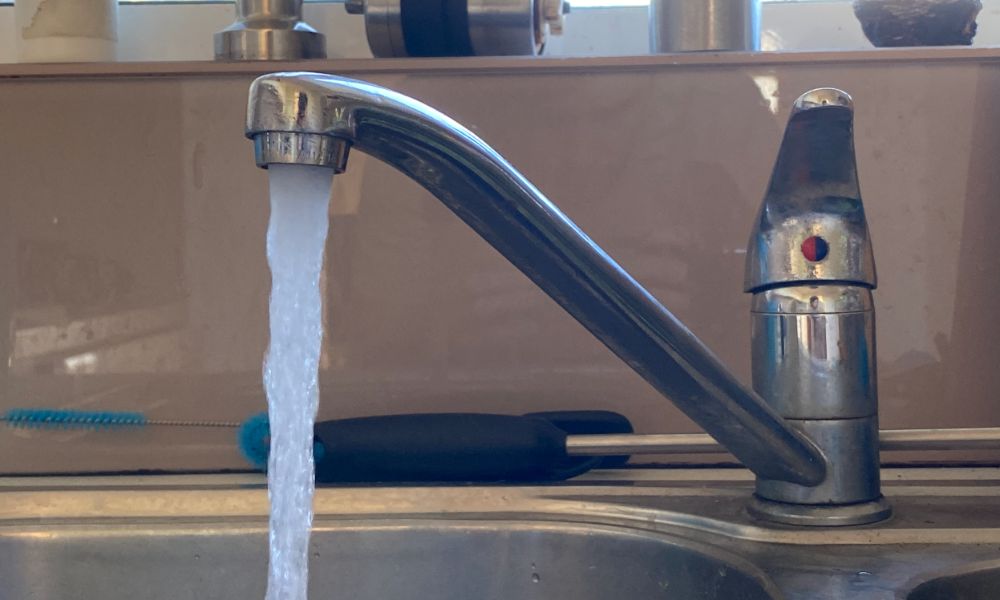
The scent of chemicals used to purify tap water may be amplified when it is bobbing about in ice form close to your nose.
Tap water is often chlorinated to disinfect and clean it, which can leave a distinctly chemical smell.
Another common issue affecting tap water quality is its ‘hardness.’ This is an indicator of the amount of calcium and magnesium it contains.
While there are no serious adverse health effects from drinking ‘hard’ water, you may notice tiny white specks melting off your ice cubes. You may have a white residue forming inside the ice cube tray from minerals in the water and this could be getting into you water leaving a chemical or metallic aftertaste.
How To Solve This: If it is only your ice cubes from trays that are a concern, you can buy filtered water to make ice or invest in a handy water filtration pitcher like this one from PUR.
Home softening water filters can also be fitted to your sink. These options will reduce the chemical smell and filter our hard water specks.
If you have chlorine in your water then simply filling up a bowl or open pitcher with water and leaving it for a few hours will cause the chlorine to evaporate and leave your water. You can also boil water to remove dissolved gases and get clearer ice. It won't make completely clear ice but it'll likely taste better.
3. Ice Has Gone Stale
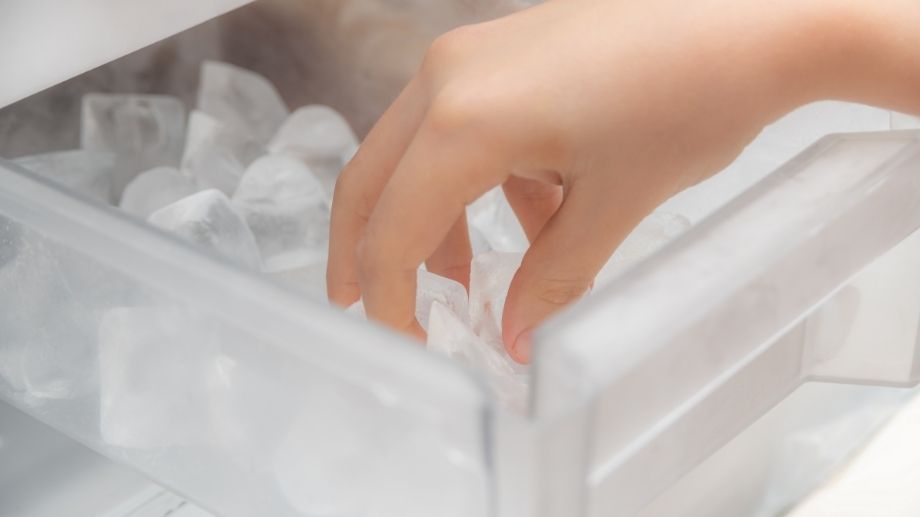
Delicious fresh ice is instantly appealing. It is odorless and free of any nasty tangs or old freezer smells.
Although there is no actual rule about how long is too long to keep the same batch of ice simmering away inside your freezer, it is best to make fresh batches regularly. Mold and germs can still grow in ice (albeit slowly) and make them go gross or stale.
Since ice is simply frozen water, it technically can go off. It can also take on funky smells and absorb floating flavors, and the longer it stands, the worse it will be.
It may even develop a layer of dreaded freezer burn, which is a form of dehydration that can even happen at very low temperatures.
How to solve this: Discard old ice and make a fresh batch if you haven’t refilled your ice cube trays for a while. If you are going away, empty your ice cube trays and make fresh ice when you return. Storing ice in an airtight container will keep it fresher for longer.
5. Mold and Dirt On Ice Maker or In Pipes
Any place that water builds up, it can become stagnant and form mold.
Hard water also leaves a continuous film inside the pipes.
Besides just being plain nasty, any unexpected additives in your water will give ice a funky flavor.
How to solve this: Check and clean the filter in your ice maker. Then follow the manufacturers cleaning instructions and give your unit a thorough clean.
This usually involves flushing the pipes with a solution of something like vinegar to strip away any build-ups.
6. Odors Stuck on The Ice Maker
The smelly ice culprit may not be the fridge air or the water. Some ice trays absorb flavors and smell more than others.
Silicone varieties are notorious for this, but ice makers made from metal or plastic can also have this problem. You may have frozen some small portions of baby food or stacked the ice tray against a strong-smelling food, and it has absorbed the food memory, which will be shared in your ice.
How to solve this: Your ice cube trays must be thoroughly cleaned to remove bad odors clinging to them. Fortunately, this is not too tricky and usually just involves cleaning them with a natural substance like vinegar or baking soda, which will eliminate smells.
7. Water Has Sat In Water Pipes Too Long
Unless an ice maker is used frequently, water in the storage bin and pipes may linger about waiting for quite some time before being transformed into ice.
It may already have taken on a distinctive ‘old’ water taste when it reaches the ice phase.
How to solve this: Empty the water reservoir or cycle about 4 gallons through your ice maker or water dispenser and discard any water or ice.
8. Check Your Water Lines Into Freezer
Over time there may be a subtle yet distinctive metallic taste that can transfer from metal items into food and water.
If your ice has a slightly chemical smell and you can’t find a reason, try checking if you have a grated stainless steel water line going into your freezer.
How to solve this: You will either have to replace the stainless steel water pipes feeding your appliance or disconnect it and manually fill the reservoir with fresh water.
9. Water Filter May Not Be Installed Properly or May Be Too Old
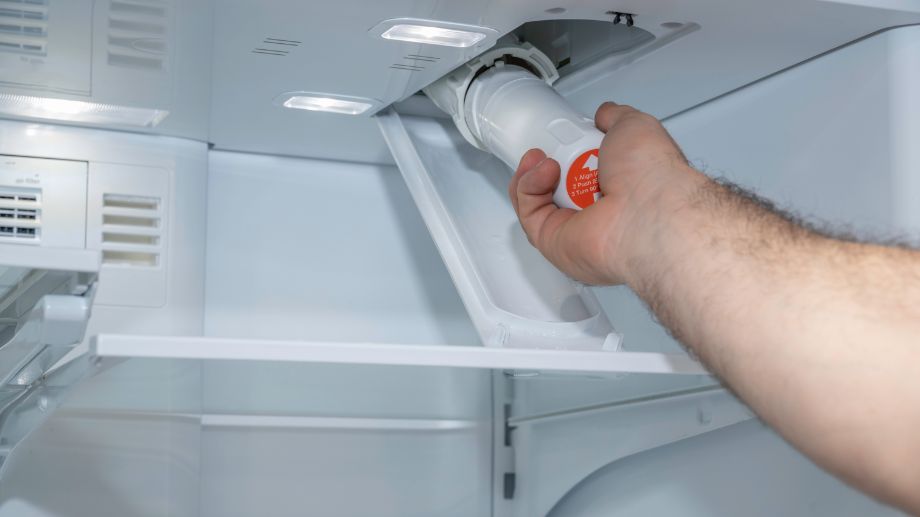
A persistent chemical taste in your ice may result from issues with the water filter fitted to your ice maker.
Filters must be replaced regularly to keep your water fresh, and it is vital that they are installed correctly to be effective.
Often bad tasting ice from your ice maker can simply be attributed to an old filter or (more likely) a filter that hasn't been installed correctly. They can be tricky to click in sometimes and this can cause the water to bypass the filter altogether – leaving your water (and ice) which a chemically taste that you wouldn't have if the water filter was doing it's job.
Check out what this person said when they fixed their filter on the Best Buy's FAQ section for LG fridges:
We had this problem. Even after a month our refrigerator water tasted awful. It was the plastic or electrical taste. After reading the article below we found the filter was not seated properly. Be sure to turn the filter clockwise PAST the first stop. Just keep twisting it. Then run another 2.5 gallons of water through it. Don’t forget to throw out the old unfiltered ice!
More people had similar responses on Houzz's discussion forum:
The fix ended up being exactly what “Shakes” alluded to in an LG forums post- the filter was not seated properly! Nothing was entering it, the water must have just been bypassing the filter the entire time. The key here is you push the filter in, twist to the right so it hangs onto the coupling, then TWIST HARDER to the right until it fully locks in place.
How to solve this: Replace the water filter on your appliance regularly. Ensure that your filter is seated correctly and it has been twisted on to fit flush with the connections, so it functions efficiently.
It may take more than one twist to get a new water filter to connect properly to your waterline, so keep twisting it until it clicks into position. Always run a couple of gallons through a new filter to purge the system each time you fit a new one.
10. Contact Customer Support If Your Continue To Have Issues
Funky-tasting or chemical-smelling ice is not something that anyone wants to live with. If you have tried all the odor fixes above and your ice is still unsatisfactory, contact customer support of the freezer brand or ice maker.
You may find replacement parts available or a brand-related explanation that will remedy your ice-odor challenge.
Conclusion
Ice can take on an unpleasant chemical nuance if the water is stale or contains high amounts of purifiers or minerals. There may also be dirt inside the pipes or machine, or the actual ice may have absorbed flavors from the air inside the freezer or the ice cube trays.

